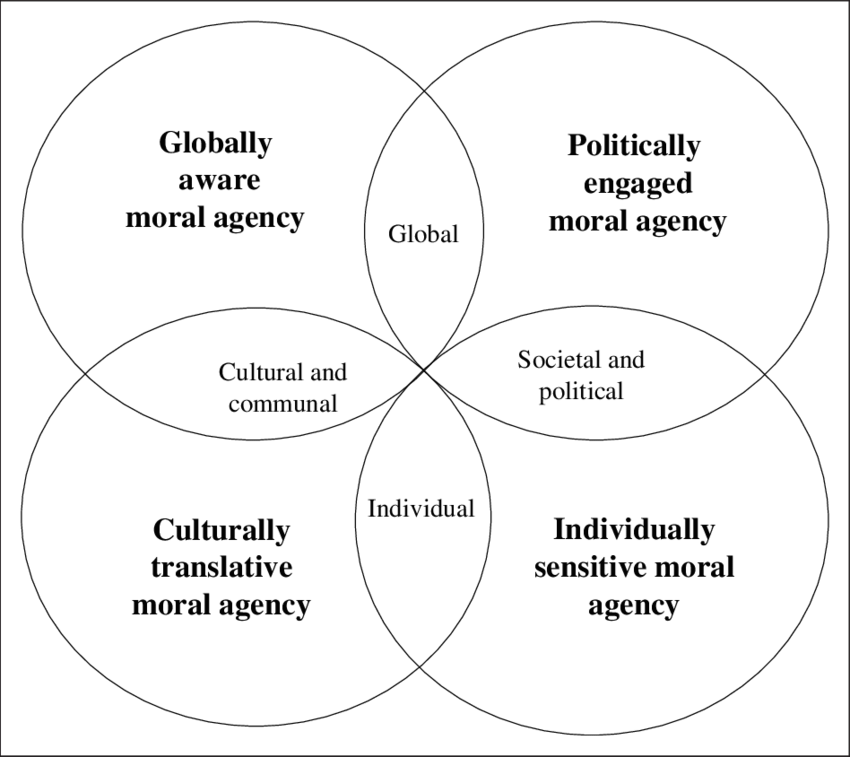- Filter By :
- Theoretical Questions
- Case Studies
-
Q. How does the idea of 'moral agency' influence the responsibility of individuals in positions of power? (150 words)
22 Aug, 2024 GS Paper 4 Theoretical QuestionsApproach:
- Introduce the answer by defining moral agency and its key components
- Give supporting arguments to Enhanced Responsibility of Individuals in Power
- Conclude positively.
Introduction
The concept of moral agency, which posits that individuals are capable of making informed and ethical choices, is central to understanding the responsibilities of those in positions of power.
- These individuals, due to their influence and authority, bear a heightened moral obligation to act with integrity and in the best interests of the public they serve.
- Key Components of Moral Agency
- Autonomy: The ability to make choices independently without undue external influence.
- Rationality: The capacity to reason logically and critically.
- Consciousness: The awareness of oneself and one's surroundings, including moral considerations.
Body
Enhanced Responsibility of Individuals in Power
- Amplified Impact of Decisions: Those in power have a broader sphere of influence, meaning their decisions affect a larger number of people.
- E Sreedharan's decisions in managing the Delhi Metro project affected millions of daily commuters, local businesses, and urban development, showcasing how a leader's choices can have far-reaching consequences.
- Access to Privileged Information: Leaders often have access to information not available to the general public, increasing their responsibility to make informed and ethical decisions.
- As a key figure in India's missile program, Dr. A.P.J. Abdul Kalam had access to sensitive national security information, carrying the responsibility to use this knowledge for the country's defense while maintaining ethical standards.
- Role Model Effect: Those in power serve as role models, influencing the behavior and values of others through their actions.
- Rohit Sharma exemplifies the "Role Model Effect" by treating all players equally and supporting younger teammates like a big brother.
- His leadership style, marked by humility and inclusiveness, inspires young players to emulate his approach both on and off the field.
- Rohit Sharma exemplifies the "Role Model Effect" by treating all players equally and supporting younger teammates like a big brother.
- Resource Control: Powerful individuals often control significant resources, amplifying their capacity to effect change – both positive and negative.
- Azim Premji's control over vast corporate resources at Wipro and his decision to donate a significant portion of his wealth to education exemplify the ethical use of financial power.
- Systemic Influence: Those in power can shape systems and institutions, creating long-lasting impacts beyond their immediate actions.
- T.N. Seshan reforms as Chief Election Commissioner reshaped India's electoral system, demonstrating how those in power can create lasting institutional change.
- Capacity to Address Complexity: Power often comes with the ability to tackle large-scale, complex problems, creating a responsibility to address issues others cannot.
- Kailash Satyarthi’s (Child Rights Activist) unique position allowed him to address the complex issue of child labor, demonstrating how leaders can tackle large-scale social problems.
- Accountability for Organizational Culture: Those in power shape the culture and ethical climate of their organizations, bearing responsibility for the collective behavior of those under their influence.
- Narayan Murthy’s emphasis on corporate governance at Infosys set the tone for ethical practices, influencing the culture of the entire Indian IT industry.
Conclusion
The idea of moral agency is fundamental to understanding the responsibilities of individuals in positions of power. These individuals, due to their influence and the trust placed in them, bear a heightened moral obligation to act with integrity, fairness, and in the best interests of the public they serve. By recognizing and fulfilling their moral agency, leaders can inspire others, promote positive change, and leave a lasting legacy.
To get PDF version, Please click on "Print PDF" button.
Print PDF





